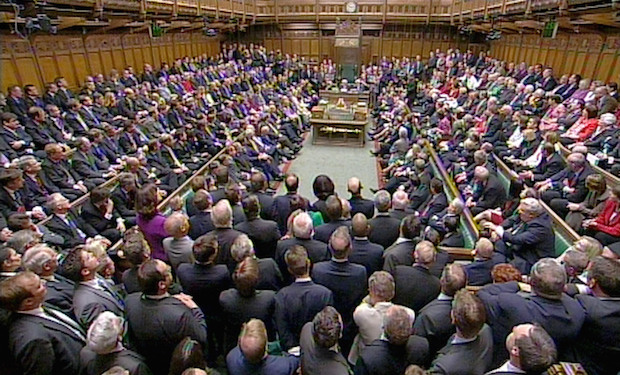Theresa May might have won every Brexit vote in the House of Commons so far, but it’s getting trickier now. The House of Lords this week rejected the plan to trigger Article 50 without offering assurances to EU nationals, knowing that most MPs are sympathetic. I understand that the Tory whips are working hard to whittle down threatened rebellion at the ‘ping-pong’ stage. Given that everyone in Vote Leave pledged to protect EU nationals – as did four out of the five original Tory leadership contenders – it’s harder work. Quite a few rebels feel they need to make a point about the status of EU citizens.
The whips will probably succeed, and it seems (this time) that the Lords will not send it back to the Commons again. But an even bigger and longer-lasting headache will be the reams of Brexit-related legislation that will need to be voted through as a result of the proposed Great Repeal Bill. The problem lies with so-called secondary legislation, the detail attached to an Act of Parliament, which can range from something as small as the location of a road to a major change in government spending. The Great Repeal Bill will create huge reams of detailed changes, and set up regulatory regimes that were previously the responsibility of Brussels. It will be a legislative nightmare. The MPs who have quit parliament so far – David Cameron, Tristram Hunt and Jamie Reed – will have had reason to be grateful that they’re missing out on this never-ending debate.
Normally, this secondary legislation doesn’t trouble the whips. They’re approved by committees made up to reflect the political balance of the Commons – MPs are generally happy to keep quiet and vote as they’re told because it means they can get in and out the committee meetings quickly. But, as we’re seeing, things are different with Brexit. A great many people can get worked up over small changes. And the more Brexit legislation there is, the more MPs will be needed to sit on committees to scrutinize it all. I understand that there is some concern that it will be a real struggle to find enough MPs willing to join the committees, sift through the detail and have Brexit minutiae take over their lives.
Number 10 is so worried that about the lack of willing MPs that there’s talk of creating smaller committees. Labour might be sympathetic to this proposal: the Opposition whips already have their own headache shepherding their MPs to the legislative committees that they are supposed to attend. Getting Labour MPs to fall in line over Brexit is a hideously complicated job – especially with whips telling backbenchers to vote for the Article 50 bill while saying that they themselves would rebel.
These complications are just starting. Theresa May could well look back at the Article 50 debacle as the easy part: the great parliamentary Brexit battle is only just beginning, and will take years.







Comments